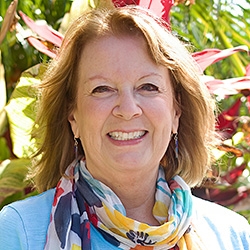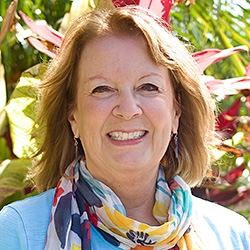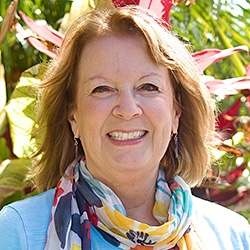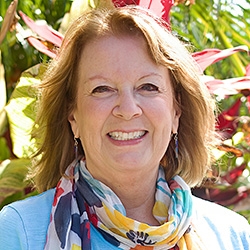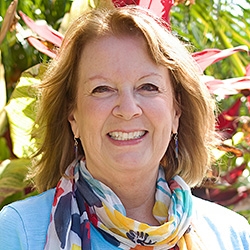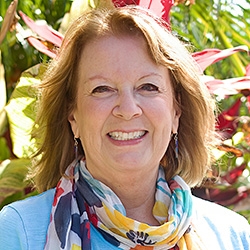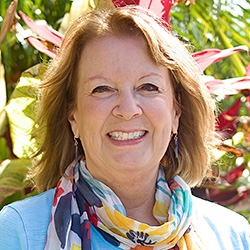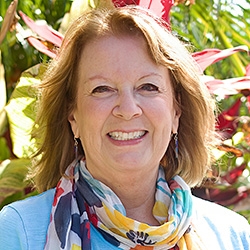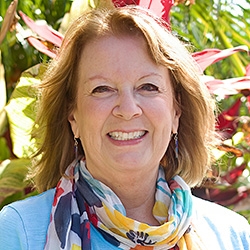
Search Results: universal human needs
-
How can we express ourselves in a way that supports a natural flow of connection while maintaining a focus on NVC consciousness? This handout from CNVC Certified Trainer, Miki Kashtan, offers seven options that support NVC enthusiasts in evolving from classical to colloquial NVC language.
-
Have you ever gotten a fishing line all tangled up? You got so frustrated you just started yanking on the different loops of line, which of course made the knots and tangles even tighter and more difficult to untangle. Wouldn’t it be great if you could notice the minute you were starting to tangle things up in a discussion with your loved one?
-
Poetic License is a fun group exercise that's sure to incite laughter in your NVC group!
-
In this telecourse recording, you will learn and practice self-awareness skills to fine tune your attention to met needs; savoring feelings of well-being; expressing these feelings to others; and receiving other people's messages of joy, gratitude, inspiration and more!
-
NVC practice is based on several key assumptions and intentions. When we live based on these assumptions and intentions, self-connection and connection with others become increasingly possible and easy, helping us contribute to a world where everyone’s needs are attended to peacefully.
-
Trainer Tip: Mary explains how Nonviolent Communication, a process that distinguishes needs from strategies is also itself, a strategy.
-
Trainer Tip: Clarifying our requests can make the difference between frustration and satisfaction, Mary shows you how.
-
Trainer Tip: Knowing the difference between what we need and what we want someone else to do about that need can have a profound impact on our relationships and our happiness.
-
Trainer Tip: Persisting without demanding is the art of what Marshall Rosenberg fondly called "Dogging for our needs." We can learn to not give up on our needs and at the same time, refrain from demanding they be met.
-
Trainer Tip: We can expand our connection to humanity by considering the many strategies people use to meet our common needs.
-
Trainer Tip: Sometimes the best way to get our need me is to first connect with the needs of another.
-
Listen to Robert describe the five core principles of Living Compassion and the relationship of needs to spirituality. Great material for reflection and reference!
-
Trainer Tip: There are many ways to meet a need. Open to new possibilities.
-
Mary explains the value of expressing ourselves honestly. Watch as Mary uses the 4-step Nonviolent Communication process to express needs clearly, honestly and compassionately. She follows with concrete examples to help you anchor your learning process to deepen your authenticity and honest expression skills.
-
In this vintage NVC video, Bridget Belgrave, CNVC Certified Trainer from the United Kingdom, uses a Powerpoint presentation to demonstrate the key principles of Nonviolent Communication. Starting with needs at the center, Bridget builds a visual structure of the NVC process. This resource has been newly remastered to a larger, higher quality video.
-
Trainer Tip: Mary expands on one of the basic principles of Nonviolent Communication: valuing everyone’s needs equally.
-
Trainer Tip: In Compassionate Communication, we consider needs to be universal. That means that while we all have the same needs, such as for love, support, shelter, food, joy, caring, etc., we choose different ways to meet our needs.
-
Rachelle Lamb invites us to consider how our well being is impacted by what we choose to put at the center of our narrative regarding our needs. And how that affects whether or not we get closer to truly serving life and compassion...
-
What could be, more often than not, overlooked when we think about or represent NVC or Marshall Rosenberg's work? This article busts some commonly held ideas and approaches to NVC. It challenges us to widen the lens of what it really means to be "life-serving", or speaking and hearing the "language of life". And it also speaks to how thinking can deepen feeling and relatedness...
-
When we don't like what someone is saying to us, sometimes people encourage us to hear their needs, and "not take it personally" -- and we're inclined to agree. Could "not taking it personally" close our hearts and awareness to others, life and ourselves? Rachelle Lamb invites us to take a closer look at what it's like when we attend to the situation from our hearts, and skillfully reflect upon our actions with tenderness.






